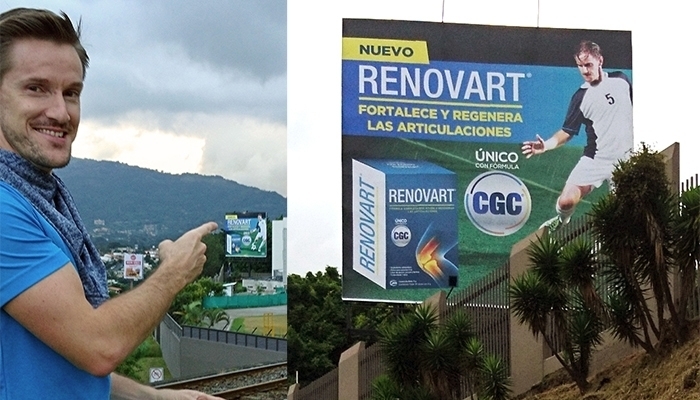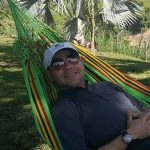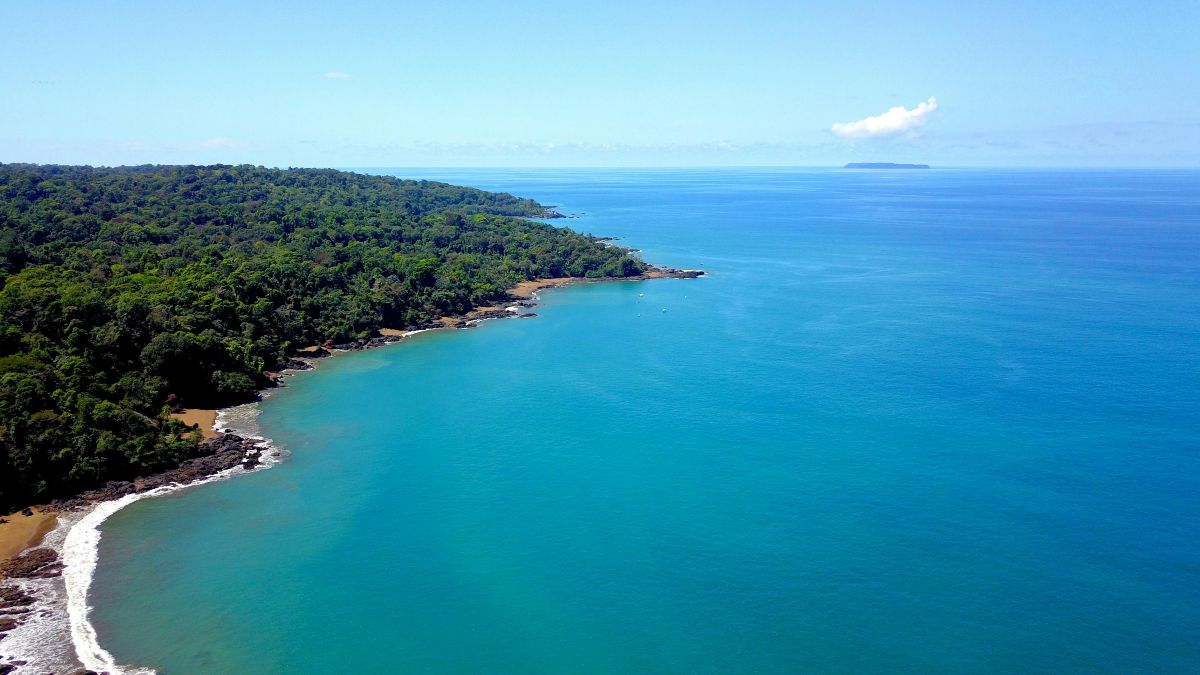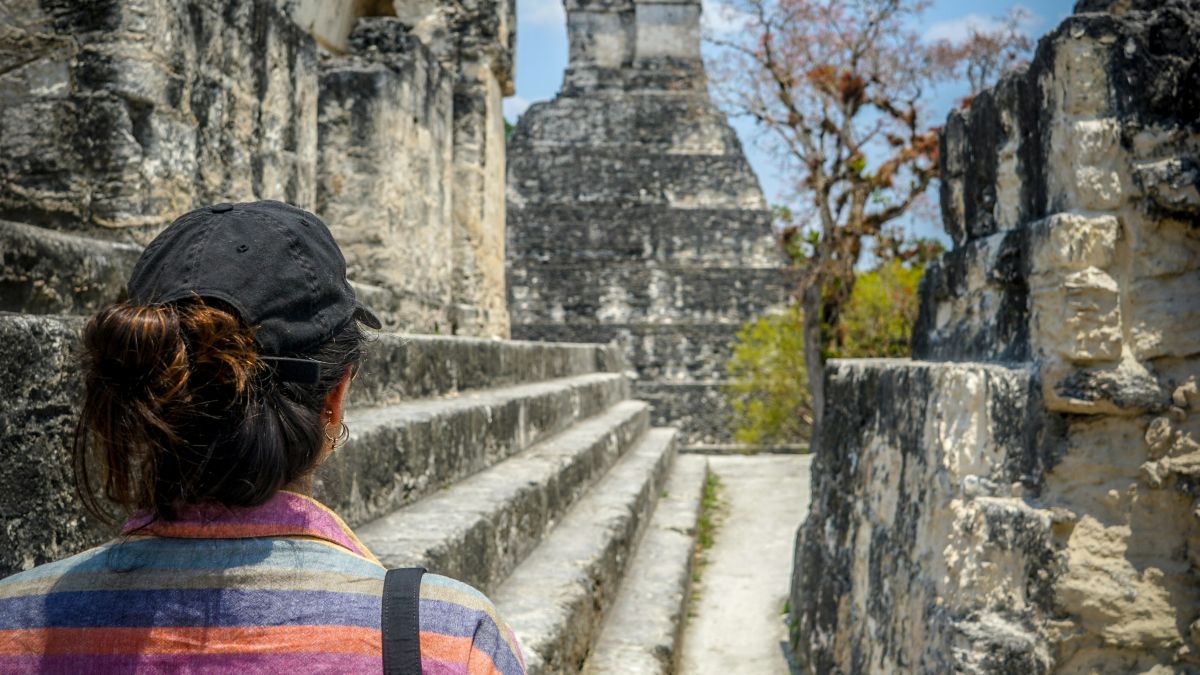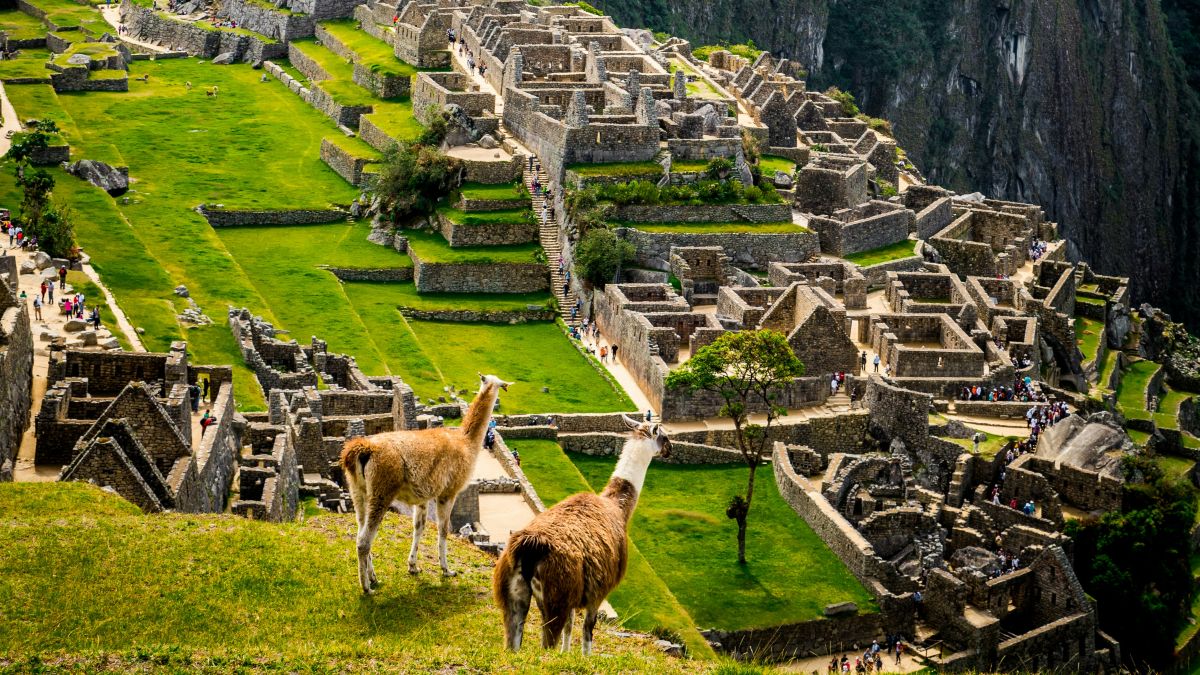Let’s Talk Tourism is a new series of videos from Namu Travel Group founder and CEO Casey Halloran. In Let’s Talk Tourism, Casey talks to movers, shakers, and experts in Costa Rican (and Central American) tourism. His goal is determine the state of the industry during the current pandemic and beyond. In his second episode, he talks to travel presenter and video marketer Adam Baker.
British expat Adam Baker is a bit of internet celebrity, and the driving force of the Costa Rican Vacations video series Frog TV, which he presents and directs.
He has his own production company, Tempest Pictures, and can sometimes be seen on billboards around Costa Rica as a male model. Oh, and he’s also written for this site.
He’s a great friend of mine and it’s great to talk tourism with him. Here are the highlights of our conversation. We’ve outlined the essence of what we were talking about rather than providing an exact transcription. To see the whole thing, please watch the video below:
How long have you worked in tourism?
It’s coming up 15 years, since I arrived in Costa Rica in 2006. When I first arrived here back then, it was with my sister on a post-university conservation program in Monteverde.
I lived there, in the cloud forest, for around a year-and-a-half where I worked as a tour guide for the local frog pond, telling people about frogs and weird Costa Rican reptiles. I was giving these tours in English and Spanish to people from all over the world, Europeans, Americans, Canadians, Mexicans, Israelis. That first showed me how important tourism was to Costa Rica.
And then in 2008, I started working with you guys, with Costa Rican Vacations.
You started at CRV as a travel planner?
Yeah, I started as a travel consultant. Richard Bexon interviewed me, but before that I always remember the job ad that made me apply.
“If you speak English, know Costa Rica, and want to test hotels for a living, give us a call”.
That was the best ad ever. I knew English quite well, I was passionate about Costa Rica, had no sales experience, was grateful for the opportunity, and jumped right in at the deep end.
Before I got the job, I knew I wanted to stay in Costa Rica. Something about the place clicked with me. I was around 23 at the time, and getting the job helped me stay. So I spent the next three years or so planning vacations for you guys. It was a good time.
What was your first WOW moment in Costa Rica once you started working in tourism?
I have a lot of pinch-yourself moments here. But I always remember living in Monteverde, before starting at CRV. I used to work across from El Establo, one of the biggest hotels in the area.
At the time, my rent in Monteverde was something around $200 or $300 a month and El Establo was like $200 a night. Back then in my early 20s, I couldn’t imagine going to this hotel. It was beyond my dreams.
But then, going to CRV, where we sold hotels like that all the time and get to check them out, I returned to El Establo. And that was kind of crazy for me, returning to, and staying in this hotel which always seemed so far out of reach when I lived in the area. It was a mindset switch for me, in terms of the level of luxury you can experience in Costa Rica.
But my first eye-opener was going to Nayara. It had just been built and only had something like 24 rooms. Nowadays, it’s expanded into three different properties, Nayara Gardens, Nayara Springs, and Nayara Tented Camp. But back then it was still the original Arenal Nayara.
I remember the service, the views, the people, the warmth. They even had a European wine bar. I’d never seen anything like it in Costa Rica. I’d been in the country a couple of years and knew about the warmth, but everything else was on a whole different level for me.
Has the pandemic changed your assumptions about tourism?
Well, one thing I know is that people always want to travel. They always will want to travel. To me, travel is an essential human experience and I have no doubt travel will come back.
In terms of Costa Rica, I don’t think travel will come back necessarily stronger, but more different. How different? I don’t know. I just know Costa Rica will adapt to all the new protocols and guidelines and so on. That’s one thing I’ve learned about this business, it adapts well.
People are starting to travel again, little by little, and they’re getting used to all these new normals.
How do you think post-pandemic travel might change?
One of the biggest things is limited interaction. The most important part of travel is the people. You might be in a beautiful place, geographically, the hotels might be astounding, but it’s the people you have these experiences with.
COVID has created a barrier between people. Whether that’s someone serving you in a hotel with gloves and a mask, or check-in no longer being face-to-face, or whether you’re just in your bubble, not able to share interactions with other travelers, that barrier is there, that lack of interaction.
It’s going to be interesting how people feel about that type of experience when they travel. It’s going to be a different vibe with less interaction going on with people.
What do you think makes Costa Rica tourism so unique?
Every time I’m shooting a video for a hotel, I ask that question when I’m talking to the staff or general manager. I’m trying to get them to give me their unique selling point so I can somehow capture that, or the essence of that, in the video I’m making to promote the hotel.
And pretty much much every hotel gives me the same answer. They say the people. It’s the people who make a difference here.
I’m trying to differentiate a hundred different hotels around the country and the all tell me the same thing!
But you know what? They’re all right. They all have a point. All these hotels hire warm, engaging people, because for the most part, Costa Ricans are warm and engaging. They’re also very proud of their country. Ticos love their country and feel so proud to show you their heritage. I’ve not seen that so much elsewhere.
Ticos are incredibly passionate about their country, about their knowledge of the country. So when you’re with, say a guide, talking to you about wildlife and conservation, their passion is infectious and it’s totally natural in Costa Rica.
When I’m at, say, one of the larger hotels, you know, the brand name ones, the people there are following a corporate etiquette. But when you get out to smaller places, from luxury hotels to hostels, you see it’s all natural with the people working there. They’re passionate and love being where they are.
Who are are your favorite people in Costa Rican tourism?
I’ve often found the most interesting people are the expats like us, who came to build lives in Costa Rica. Why did any of us do that?
Guys like Joachin Rodriguez, an Argentinean who runs Stay in Costa Rica at Los Sueños. Hans Pfister from Cayuga, he’s a great friend, came here from Germany.
Jennifer Perez, a Tica I’ve worked with a lot. She’s a wonderful person and I’ve only got good things to say about her.
And it’s not just tourism people. I’ve met so many people here, from my best friend who’s a Canadian to my partner, a Venezuelan.
It’s a wonderful melting pot where you meet travel lovers from all over the world.
Last question. What’s pura vida?
When I first heard of pura vida when I got here, it reminded of the Italian “ciao” and how that means hello and goodbye. Pura vida can be used in every single sense. It’s more than just hello and goodbye, pura vida means everything in one sentence.
If I had to nail it down to a single meaning, it would be happiness. You never see anyone use pura vida in anger, it’s a positive thing. I don’t know any other country in the world that has a phrase to sum up pure positivity in a single line.
Adam Baker’s eternal optimism is a great tonic for all us tourism people during tough times, and I enjoyed the chat.
I hope you enjoyed his take on things here in Costa Rica. Please watch the video for more detail. See you for the next Let’s Talk Tourism episode soon!
Related:
Let’s Talk Tourism! Casey Halloran and Colin Brownlee Talk Costa Rica Tourism
Let’s Talk Tourism! Casey Halloran and Hans Pfister Talk Costa Rica Tourism
Let’s Talk Tourism! Casey Halloran and Jim Damalas Talk Costa Rica Tourism
Let’s Talk Tourism! Casey Halloran and Meni Mikowski Talk Costa Rica Tourism
Casey Halloran is the co-founder and CEO of the Namu Travel Group. He lives in San Jose, Costa Rica with his wife and children.
